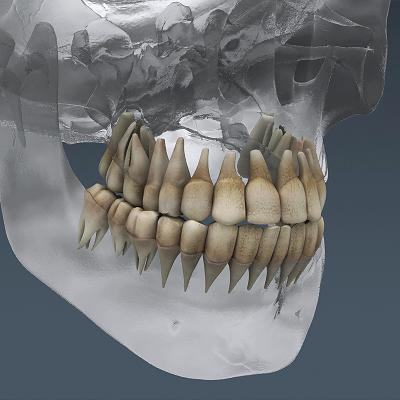
LetsFixYourFace
Boston, MA
Male, 35
I practice oral and maxillofacial surgery in a major metropolitan area in the US. Despite the fact that I was a dentist before I was a doctor (now I am both), taking out teeth is but a mere bank rolling of my true interest... Cutting into peoples faces :)
- Wisdom teeth
- Facial fractures
- Head and neck tumors
- Facial cosmetic procedures
- Fixing your jacked up bite
I am not really at liberty to say. He had metastatic thyroid cancer and I am not a head and neck cancer trained surgeon. I just don't have the awareness of the specifics of his grade/stage of cancer or the behavioral patterns of that type of cancer. I know it is a rare form of cancer and what happened to him was very tragic. I am certain that those surgeons, oncologists and radiation oncologists were all working together and devised the best treatment that they could come up with. It is important to know that treating cancer isn't a one person show. It often takes an entire team to devise plans and coordinate therapy.
That is THE question facing OMFS right now. For the sake of discussion we are speaking explicity about impacted, non functional teeth.
Allow me to answer this with 4 scenarios. I think your question specifically refers to scenario #4 so skip to that for the immediate answer.
#1. Your wisdom teeth are bothering you and they show signs of disease (cavities, infection, loss of the periodontium - gums, etc). This is obvious, it makes sense to go ahead and take these out.
#2. Your wisdom teeth are bothering you but there is no sign of disease: This is the least common scenario. Sometimes, it is not even the wisdom teeth that are the cause of the pain. Sometimes it is the TMJ's or muscle pain or even pain from another tooth. It is sometimes better to figure out what is going on in this case rather than just pulling the teeth because often the pain remains even after the wisdom teeth come out and the patient's are left dissatisfied. Discuss this with your surgeon if you are in this scenario.
#3. Your wisdom teeth are not bothering you, but there is sign of disease. Most often the sign of disease is deep periodontal probing depths or evidence of bone loss associated with the next tooth forward. There is usually not enough room in the jaw for wisdom teeth to erupt into so they can easily grow in "sideways." When they do this, they can break the seal that the gums have with the teeth and bones leading to deep tracts (or pockets) for food, plaque and bacteria to get into and cause even further destruction of the teeth, gums and bone. Left long enough, these teeth will eventually become symptomatic. These teeth should usually come out.
#4. Your wisdom teeth are not bothering you and they are not showing signs of disease. The traditional reason for doing this is the following. Taking them out can prevent problems in the future. This is considered prophylactic. Usually this is done at a young age. We have found that younger people have a few advantages in this regard. For one, the teeth are easier to get out as their bones are a little softer and the teeth aren't fully developed. 2 - they are often healthier and can tolerate being under sedation for an hour without problems. 3 - and most importantly, they tolerate complications better. Complications such as nerve injury are real with taking out wisdom teeth. This can lead to a numb lip, cheek and/or tongue. When this happens to young people, there is usually something that can be done about it and it is rarely permanent. When a nerve injury happens to older people, it is almost ALWAYS permanent. So you are facing a bird in the hand or two in the bushel type situation. While younger people don't always have symptomatic or disease wisdom teeth, they may very well develop them in the future and they are less able to tolerate the situation at an older age. Finally, although rare, there are tumors of the jaw that arise from the follicles of unerupted teeth. Some of these tumors, you cannot get if you don't have any unerupted teeth. They are easily visible on routine dental radiographs. So at the very least, if you decide not to get your impacted wisdom teeth removed, you should have them evaluated by your dentist or surgeon at least every 2-3 years to make sure they do not progress to a diseased state. This evaluation should include an x ray to make sure no problems are arrising.
Hope that helps
Its hard to say... A lot can go on in there. Surgeons are by nature not very squeemish so when crazy things do happen they don't stick out in my mind for very long.
Something that I will always remember however...
As a resident, it was my birthday and I had to spend 13 hours in the OR... No bathroom or food breaks, scrubbed the entire time, occasionally cranky moments by the attending. I wen't home for the evening at around 8PM, fell asleep an hour later, woke up the next day and had to be back at the hospital at 7 AM for a 24 hr call shift.
Sorry for the hiatus....
It is a different residency program but with some overlap. Remember that there are all types of surgeons and they all have some core overlapping principles. By "regular surgeon" I am going to assume you mean General Surgeon. General Surgery is a residency that lasts 5 years from start to finish. Oral and Maxillofacial Surgery is 4 years of residency training. Remember, though, that oral surgeons went to dental school, not medical school. Roughly half of the oral surgery residency programs actually send you to medical school for 2 years (last two years) in the middle of the residency to get your medical degree. For those programs, it takes 6 years to complete the training (4 years of residency with 2 years of medical school in the middle).
Now there is overlap with General Surgery in that you rotate through general surgery department during your residency training. Each program has varying amounts of time spent on general surgery but is typically 1-2 years.
TV Meteorologist
 Is having a weatherman really better than just throwing to a 5-day forecast screen?
Is having a weatherman really better than just throwing to a 5-day forecast screen?
School Teacher
 Do you think teachers are underpaid? Why?
Do you think teachers are underpaid? Why?
Magician
 What's the most amazing magic trick you've ever seen?
What's the most amazing magic trick you've ever seen?
Bare minimum - 1 surgeon, 1 anesthesiologist, 3 nurses (scrub tech, surgical assistant, OR circulator) = 5 minimum. Aside from the surgeon you have pass off if the case is long (people take each others places) so you can get rotating personel.
In a teaching hospital those numbers are inflated. You will have 1 attending surgeon + 1 or 2 residents. 1 anesthesia resident with a presiding anesthesia attending who may or may not be in the room but is nearby. There are usually still 3 nurses.
Things for the most part stay professional but as in any workplace you can get a clash of attitudes, personalities. Situations can get tense and things can get heated. Problems can be started by nurses and doctors alike. Its not really like the olden days anymore where the surgeon gets all out command and dictatorship. I think there is no question who is in charge when things go sour but surgeons can't really bully everyone around like they used to.
I am not sure which procedure you are referring to? We do a vast array of surgeries ranging from emergent due to airway compromise from an infection or bleeding into the airway to elective cosmetic and orthognathic procedures.
It is very much like a trade or a craft. When you start out, you basically watch the attending and chief resident do the operation. You hold retractors and help out when you can. Eventually they start letting you do minor tasks (place screws, close wounds, minor dissections etc). Between that and the procedures that you do routinely in the clinic you develop a surgical skill set. Cadaver dissection courses are taken yearly and are about 2 days long but this is more for anatomy then surgical technique. As your years in training go by you get to do more and more and by the time you are a chief resident you do basically the entire operation.
-OR-
 Login with Facebook
Login with Facebook (max 20 characters - letters, numbers, and underscores only. Note that your username is private, and you have the option to choose an alias when asking questions or hosting a Q&A.)
(A valid e-mail address is required. Your e-mail will not be shared with anyone.)
(min 5 characters)
By checking this box, you acknowledge that you have read and agree to Jobstr.com’s Terms and Privacy Policy.
-OR-
 Register with Facebook
Register with Facebook(Don't worry: you'll be able to choose an alias when asking questions or hosting a Q&A.)